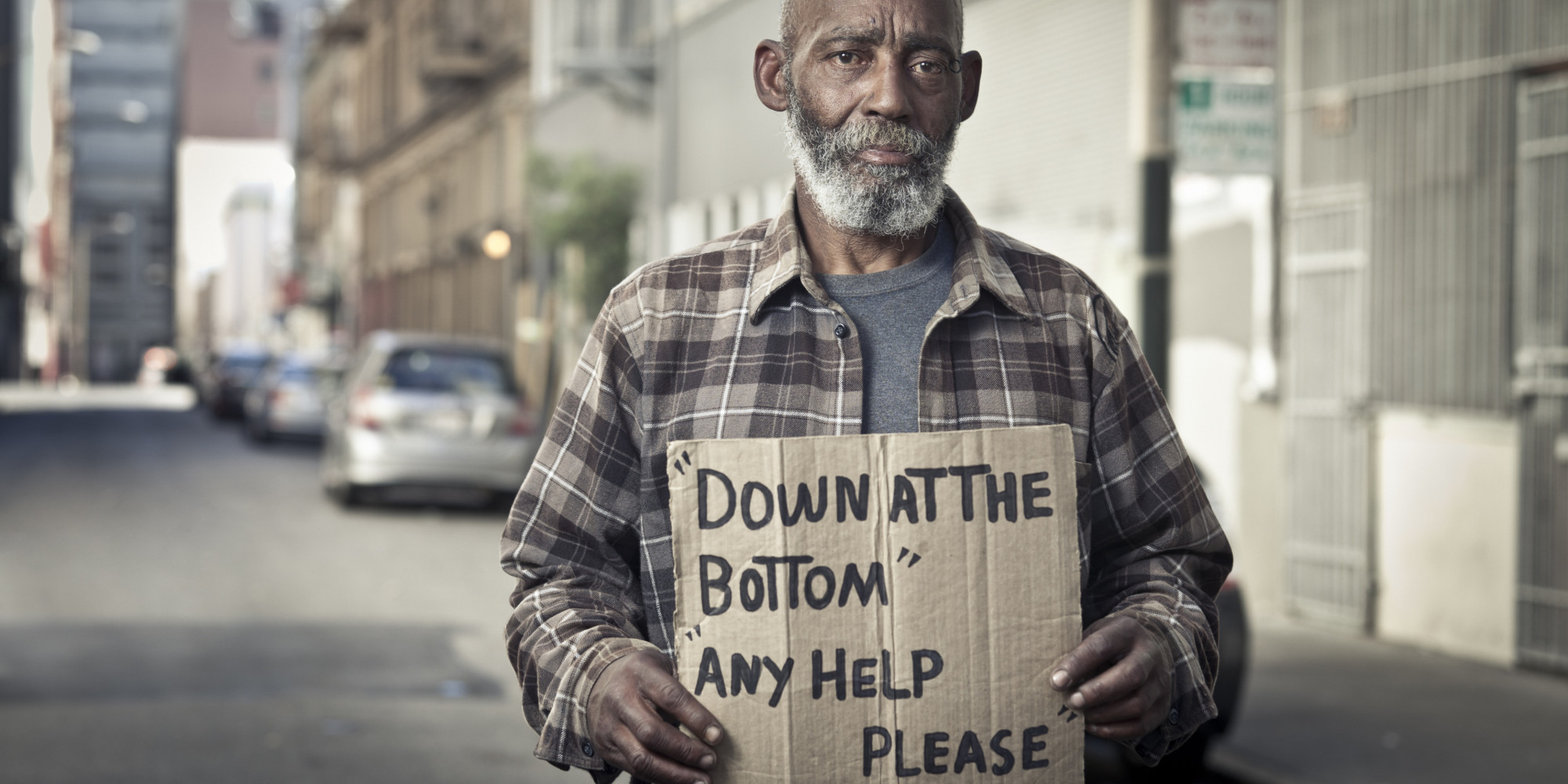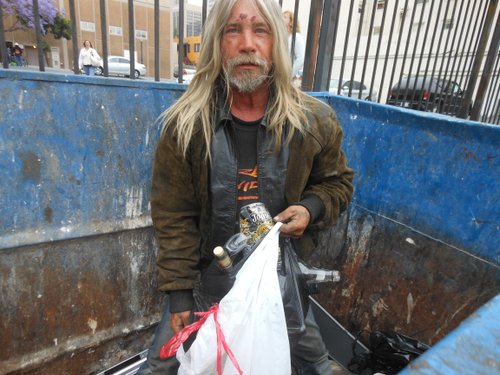Trevor was a young man when he became homeless. He had worked a few jobs, but it was hard to
stay with any of them. As long as he
could remember, he was struggling with himself.
He would become furious with his mother.
There were good reasons, always, for him to be angry, but his response
seemed over the top. He would rage,
throw things, break things, and people would back off, fear him. That was somewhat satisfying, but he was as
scared of himself as his family was. His
mother would tell him that he was a bad boy, his father would express his
disappointment in him.
When he became homeless, his family fully expected it. They figured he would be a criminal or a bum.
It’s the kind of person he was. So they
offered him help, but at a distance.
They would invite him to family gatherings, and most of the time they
wouldn’t show up to get him as they said they would. They didn’t know how to handle him.
Even after Trevor had been camping for a long time, he liked
to work. He wanted the respect and pay
of a job well done. He would clean up
bars after they were closed, for nothing.
To work eased his mind, gave him something to focus on apart from
himself. He needed that. Because he couldn’t stand himself. He felt he was a good person, but he couldn’t
help but look back and see all the mistakes, all the people yelling at him, all
the problems he had caused.
Darren was a pastor of a local church. He allowed Trevor to sleep overnight behind
the church on occasion. Trevor asked to
help clean up, to care for the facility, and Darren figured there was no harm
in it. Trevor did a fantastic job. Every task he was given he did with gusto and
did more cleaning that he was originally asked.
Darren invited Trevor to stay behind the church every night, because he
was a good man, and helpful.
Eventually, there were problems. Trevor had a habit of collecting too much stuff
around him, making his area look like a trash heap. Darren gave him a garbage can and asked him
to keep his area clean, and Trevor did his best. People visited Trevor in the middle of the
night, and Trevor would allow people to stay there overnight. Eventually, Darren wrote out a contract with
Trevor, clearly stating the rules of their agreement. Trevor had to keep his area clean, and couldn’t
have guests in his space, and if he wanted to talk to someone, they’d have to
speak quietly or go off of the property.
After Darren explained the reasons why, Trevor understood and dealt with
the issues.
Then Trevor had a bad day.
They didn’t come often, but when he had them, he was on the edge of
exploding. On this day, Darren happened
to come upon him and told him firmly that he had to clean up his garbage. Trevor started throwing all of his
possessions at Darren, screaming, “How about this? How about this?”
Darren stood there, and calmly said, “Trevor,
you need to calm down.”
“How about you
just leave me alone? Leave!”
Darren
stood firmly and said, “No, I won’t leave.”
“Leave!
I’m going to hurt you! You know I
will!”
Darren responded, “If you hurt
me, I will still love you. I will still
do what I can for you.” Another homeless
person saw this and went to Trevor and calmed him down.
Trevor knew that he would be asked to leave now. He wasn’t worthy. He had screwed up another part of his
life. Another rejection because he was
too weak. Darren saw him the next
morning and said, “Great, Trevor. You
got that area cleaned up. Thanks for
doing that. Did you need to come in and use the bathroom?” Trevor realized that Darren wasn’t going to
reject him, no matter what. He is amazed
at the grace he has been shown. He didn’t
know such people existed.
But word got around the church at Trevor’s explosion at
Darren. Many of the church members
decided that Trevor was a danger. What
if he blew up at one of the church members?
What if he hurt someone, or put someone in the hospital? The issue was brought up at a church board
meeting, where they asked Darren, “How long will you have this man at the
church? He’s dangerous, and we don’t
feel safe.”
Darren responded, “I
understand that having Trevor staying here is a risk. You have to admit, as well, that he is an
asset. When have you seen the bathrooms
or the kitchen so clean? Every true act
of grace is a risk. To accept the
difficult or the dangerous is hard and sometimes scary. But this is what Jesus did for us. He took us in, when we didn’t deserve it,
when we were so much a risk to him that he died for us. Grace isn’t something that we just receive. It is something we pass on.”
When it was clear that Darren wouldn’t change his mind, the
board was divided. After much
discussion, it was decide that they needed to make a vote as to whether Darren
should still be pastor. They took a
formal vote, and the pastor was allowed to remain, by a narrow margin. Some church members decided that they couldn’t
be in a church that had a person like Trevor hanging around, so they left the
church. Darren, meanwhile, carefully kept this all from Trevor, so he didn’t
feel that is was another mark of rejection against him.
Trevor stayed at the church for years. He had other explosions, but never with a
member of the church. He softened over
the years and was accepted by everyone in the church as a full member. Eventually, Trevor got a paying job and an
apartment, which he kept a terrible mess all the time, but he always visited
his friend Darren.









